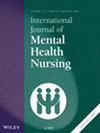Effectiveness of AIMS, a Four-Week Recovery-Oriented Suicide Prevention Pathway
Abstract
Striking a balance between risk and recovery while supporting people in suicidal distress is a challenging proposition. To address this challenge, a 4-week AIMS (Assessment, Intervention, Monitoring, Step up/down) pathway was created to support people in suicidal crisis. Each of the four functions was customised into semi-structured conversations about pain relief. The pathway operationalised tools for relational safety from the PROTECT framework for suicide prevention. To deliver this pathway, a new team was established that included both clinicians and lived experience staff. Scores for the Short Warwick Edinburgh Mental Wellbeing Scale (SWEMWBS) for 300 patients were collected before and after time on the pathway. Paired T tests were performed individually for each item as well as for the total. All 7 items and the total score had statistically significant improvement (p < 0.01). The mean pre- and post-total scores increased from 14.8 to 22.5, strongly indicating clinically meaningful improvement at an individual and group level. The improvement on baseline in each of the seven items ranged from 38% to 73.5%. The top two were in the person's ability to deal with problems and in them feeling relaxed. The study provides a blueprint for collaborative and empowering suicide prevention pathways that strike a balance between positive risk taking and safe care through a relational approach. Professional and lived experience both played a part in capturing hope through evidence-based person-centred interventions, helping a person in suicidal crisis improve their mental wellbeing.

 求助内容:
求助内容: 应助结果提醒方式:
应助结果提醒方式:


